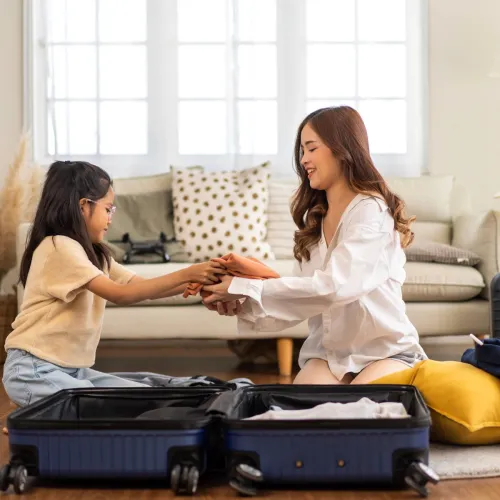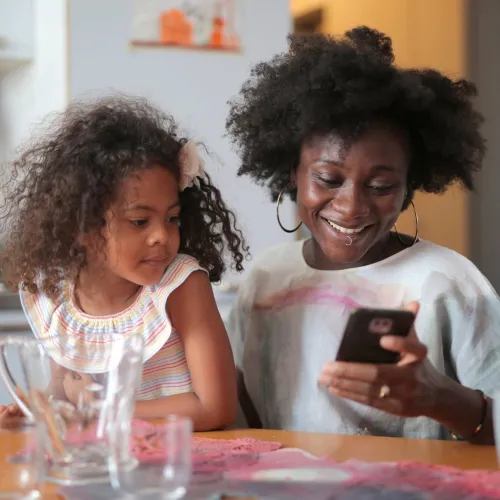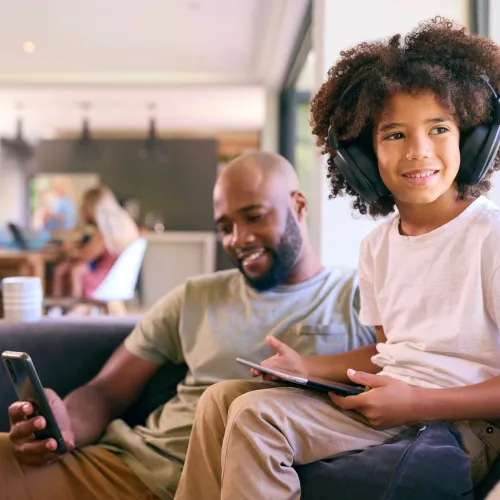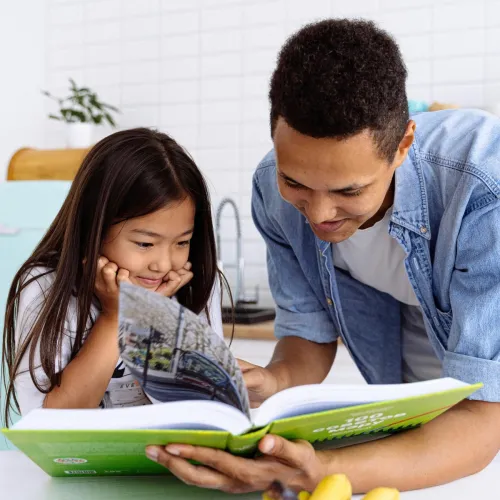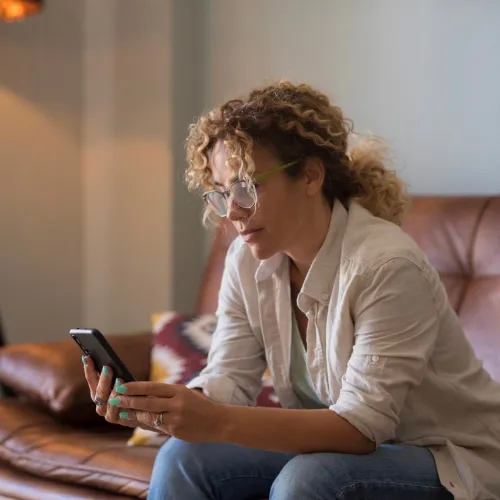Increasing Your Child's Freedoms as Co-Parents
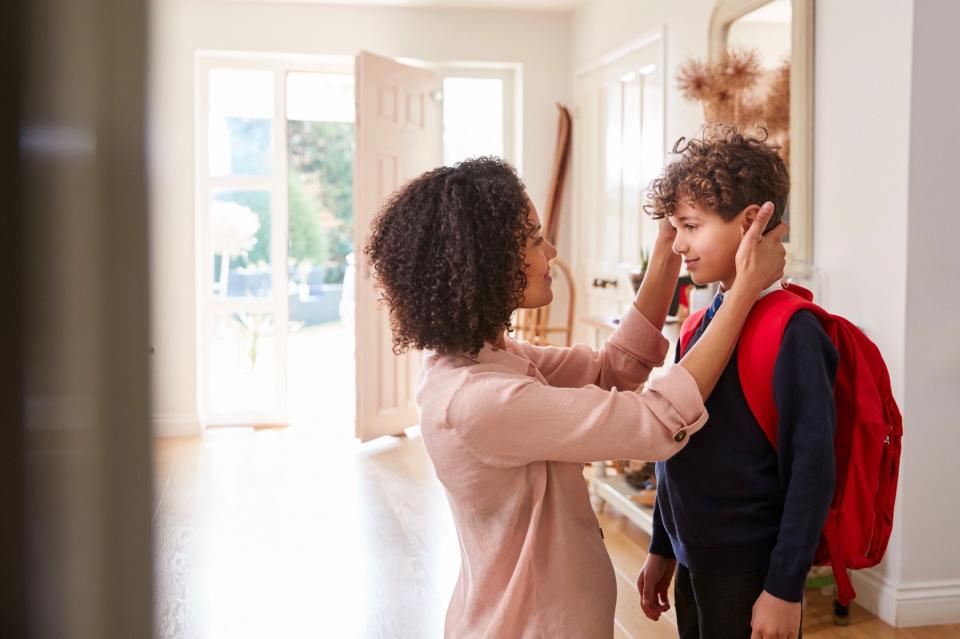
The older children become, the more freedom they tend to crave. At first, it may be small freedoms like being able to use real cups or get dressed on their own. As they continue to grow, so does their desire for more and more independence.
Letting your child stay home alone, use the stove on their own, or even having their own cell phone are all steps that parents take that increase their child's freedom. Understandably, it can feel scary to give your child certain freedoms that they did not have before, especially ones that could put your child's safety at risk.
That said, it's crucial for children to gain an understanding of responsibility as they grow into teens and later into adults. They need space to explore new things and learn how to solve problems on their own without the help of their parents, but they need their parents' support throughout this process.
Increasing your child's freedoms as co-parents
For divorced or separated parents, a bit of coordination can go a long way when increasing your child's freedoms across separate homes. Consider these points as you work to give your child more independence and increase their freedoms.
Know your child
As a parent, you know your child extremely well. You've watched them grow and have seen what they've learned along the way. You know what they can handle and what might be too much. As you decide when to increase certain freedoms, take this knowledge into consideration. Introduce new responsibilities to your child as you feel they are mature enough to handle them.
Be mindful of your personal thoughts and feelings about increasing your child's freedoms. Try to recognize the difference between feeling like your child truly isn't ready to learn something versus your desire to be in control. For many children, there will come a time where they will have to take the wheel and be in total control of their life. But while they're still young and learning, give them more freedoms and responsibility at the right pace for them.
Be your child's teacher
Much of what your child will learn about how to be independent starts with lessons at home. How to tie shoes, how to make sandwiches, and how to fold laundry are just some of the many lessons that young children learn to jumpstart their ability to be independent. Even if you have a dishwasher, taking the time to show your child how to properly wash dishes by hand—and the many other small lessons you go out of your way to teach—will go a long way.
As your child grows older, the lessons become more complex. Learning how to take the school bus alone, browse the internet responsibly, and use the stovetop are more advanced concepts that could call your child's safety into question if handled without care. As your child starts taking on new freedoms like these, be keenly aware of how they're handling them until you know they have a thorough understanding of and respect for the concept.
On top of teaching them these more challenging lessons, be a model of the behavior you wish your child to take on. Children learn so much from observing those closest to them, so your actions will teach your child even more about the new freedoms that they're being given.
Use mistakes as teaching moments
Your child will inevitably hit some bumps in the road as they take on new freedoms. This is to be expected, as mistakes are a natural part of the learning process for kids. If your child takes a misstep in relation to a new freedom, see this as a teaching opportunity. Talk to them about what happened and how they ended up making a mistake. Let them know that it's ok to not always get it right and encourage them to be more careful next time.
If the mistake they made put their safety or the safety of others into question, this is very serious. Approach the situation in a calm, thoughtful manner. You know your child, so try to understand the thought process that led to their misstep. Do your best to see the situation from their point of view and offer your knowledgable guidance as you talk through it with your child.
Try to be on the same page as your co-parent
Raising children in separate homes can be challenging, particularly when it comes to coordinating efforts to increase your child's freedoms. Try to reach a collective understanding about your child's freedoms with your co-parent. As best you can, work to reach agreements on your child's freedoms and when new ones should be introduced.
Children are great at being flexible. They can move between home, school, and other activities and adapt to the different rules in each place with relative ease. You and your co-parent may even have some different rules in each of your homes that your child can handle. That said, when you're starting to offer your child new freedoms, having some consistency in how you and your co-parent handle these freedoms can help your child understand how to manage these new responsibilities.
Get support
Increasing your child's freedoms is made easier when you have a little extra support to help. Let those closest to your family know about certain increases as needed, like special rules for cell phone usage or new curfews. More than just informing others, technology can offer useful support as their freedoms increase.
Once your child starts using technology on their own, consider implementing parental controls at least in the beginning. Both iOS and Android devices have parental control features built into their technology that parents can configure as they see fit.
As your child starts moving from place to place on their own, having a phone can be considered a safety measure. They can communicate with you from anywhere, and they can take other actions like sharing locations with you. If your family is already using the OurFamilyWizard app, your child can use the app to create a Check-in entry to verify their presence at different locations. This gives them a safe way of letting both you and your co-parent know that they arrived home from school or to a friend's house.
Increasing your child's freedoms should a slow, steady process handled with care. Remember, your child is observing you for cues on how to handle new responsibilities as they are presented. Be an understanding teacher, and work with your co-parent to keep this process going as smoothly as possible.
